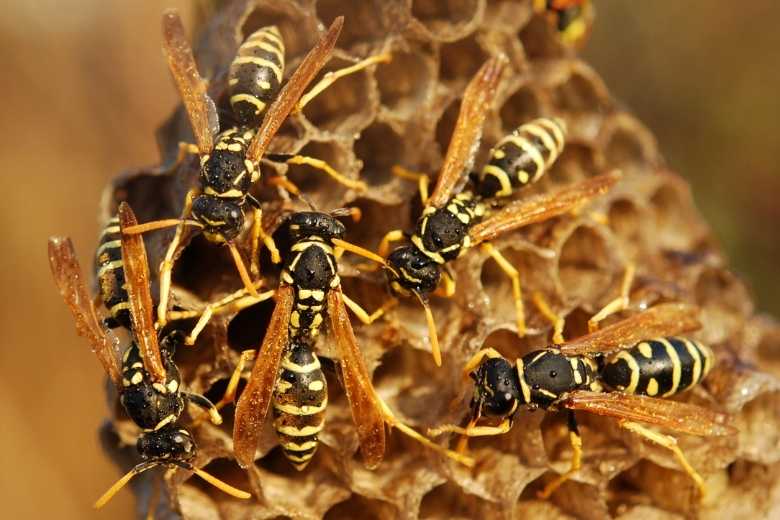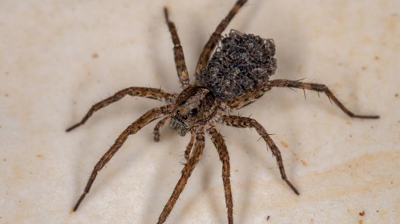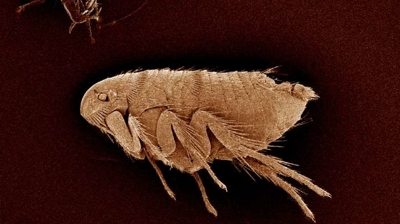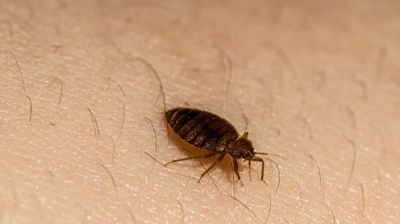
Are Wasps Harmful?
Wasps can be harmful in several ways, particularly to humans, pets, and even ecosystems. Here are the primary concerns associated with wasps:
- Aggressive Behavior – Some wasp species are naturally more aggressive, especially in late summer and early fall when food sources dwindle. They may attack people unprovoked, particularly around food or sugary drinks.
- Painful Stings – Unlike bees, wasps can sting multiple times without dying, making them more dangerous in aggressive situations. Their venom contains toxins that cause sharp pain, swelling, and redness.
- Allergic Reactions (Anaphylaxis) – Some individuals are highly allergic to wasp venom. A single sting can cause severe allergic reactions, including difficulty breathing, swelling of the throat, and even anaphylactic shock, which can be fatal without immediate medical treatment.
- Medical Costs – Severe reactions to wasp stings can require emergency medical treatment, hospitalization, and long-term allergy management.
- Swarm Attacks – Certain wasp species, such as yellow jackets, are highly aggressive and will attack in groups if they feel their nest is threatened. This can be particularly dangerous for small children, the elderly, and pets.
- Interference with Outdoor Activities – Wasps are drawn to food, making them a nuisance at picnics, barbecues, and outdoor gatherings. They can also be problematic for restaurants with outdoor seating.
- Infestation of Food Areas – Wasps are attracted to sugary substances, meats, and garbage. They can land on and contaminate food, increasing the risk of bacterial transmission.
- Hidden Dangers in Beverages – Wasps sometimes crawl into soda cans or juice bottles, leading to accidental ingestion and potentially dangerous stings inside the mouth or throat.
- Nest Construction in Buildings – Wasps often build nests in eaves, attics, walls, and other structures. Some species, like paper wasps, chew wood to make their nests, which can weaken structures over time.
- Blocked Vents & Chimneys – Large wasp nests in ventilation systems or chimneys can obstruct airflow, leading to potential safety hazards such as poor indoor air quality or even fire risks.
While wasps do play beneficial roles in pest control and pollination, their potential for harm often outweighs these benefits when they become aggressive or invade human spaces. Proper management and prevention are crucial for reducing their risks.
Learn more: Do Wasps Bite? || What Do Wasps Look Like? || Can Wasps Fly At Night?
Wasp Removal
Removing wasps from a property is important because they pose both safety and structural risks that tend to escalate if left unaddressed. A colony can grow quickly through the warm months, becoming increasingly territorial and unpredictable. When they feel their nest is threatened, they defend it aggressively, and that defensive behavior is where most human and pet encounters occur. Even people who aren’t allergic can experience painful stings that cause swelling, burning, and localized reactions, while individuals with allergies face a genuine medical emergency if stung even once. Multiple stings can also be dangerous, especially when a nest is disturbed during yard work, roofing, or routine outdoor tasks.
Beyond direct health concerns, wasps often choose nesting sites that interfere with daily life and property use. They commonly establish colonies around entryways, decks, sheds, garages, attics, rooflines, and wall voids. A nest in or near a doorway forces people to reroute regular movement just to avoid provoking them. When nests are built inside structures, wasps can chew and enlarge gaps, potentially damaging insulation or drywall as colonies expand. Some species—like yellowjackets—nest in the ground, creating hidden hazards in high-traffic areas where people, pets, or kids could step directly on them without warning.
Because wasps return to the same areas year after year, early removal helps break that cycle. Leaving a nest in place can attract more activity, increase the size of future colonies, and invite secondary pest issues if abandoned nests become sites for other insects. Eliminating the problem promptly restores safe use of outdoor spaces, protects the structure, and significantly reduces the chance of accidental stings.
Learn more: How To Get Rid Of Wasps
Wasp Control
Hiring our professional wasp control services offers numerous advantages over attempting to deal with an infestation on your own:
- Safety and Risk Mitigation: Wasp removal can be dangerous—especially when dealing with aggressive species like yellowjackets or paper wasps. Disturbing a nest without proper knowledge or protection can provoke a swarm, resulting in multiple stings, allergic reactions, or even life-threatening anaphylaxis in sensitive individuals. Our professional exterminators are trained to handle nests safely, using specialized equipment and protective gear that minimize risks to themselves and others.
- Expert Identification and Strategic Treatment: Not all wasps are the same. Our professionals can accurately identify the species, which is crucial because treatment methods vary. For example, some wasps nest underground, while others build aerial nests. Misidentification can lead to ineffective control or unnecessary disruption to non-threatening insects. Our trained exterminators develop a customized treatment plan based on the species, nest location, and the degree of infestation.
- Comprehensive Nest Elimination: DIY treatments often fail to eliminate the nest completely, leading to recurring problems. Store-bought sprays might kill some wasps on contact but rarely destroy the colony. Our professionals ensure total nest removal or neutralization, preventing reinfestation and eliminating hidden nests that untrained eyes may miss.
- Long-Term Prevention: We don’t just remove wasps—we also help prevent future infestations. This may include sealing entry points, recommending removing attractants like open garbage, providing landscape recommendations, and applying residual insecticides around common nesting areas. Our goal is to make your property unattractive to wasps in the long run.
- Time and Cost Efficiency: While DIY attempts may seem cheaper upfront, they often lead to repeated treatments, property damage, and health risks that outweigh initial savings. Our professionals resolve the problem quickly and efficiently, often in a single visit, saving you time, stress, and potential medical bills from stings or allergic reactions.
- Access to Commercial-Grade Equipment and Products: Our licensed exterminators have access to high-grade insecticides and application tools that are more effective than over-the-counter options. These products are formulated for quick knockdown and long-lasting protection, and they are applied with precision to reduce environmental impact and exposure.
- Peace of Mind and Guarantee: Our professional services come with a satisfaction guarantee and follow-up treatments if the problem persists. This adds a level of reassurance that DIY methods cannot match. Knowing the problem has been dealt with thoroughly and responsibly allows you to enjoy your home and outdoor spaces without fear.
Wasp infestations are not only a nuisance—they can be a serious safety hazard. Hiring our professional exterminators ensures that the problem is addressed quickly, safely, and effectively, with expert guidance and lasting results. For homeowners or property managers seeking peace of mind, protection, and professional-grade solutions, the value of our professional wasp control services far outweighs the risks and limitations of do-it-yourself approaches.
Wasp Exterminators
Hiring our local exterminators to handle a wasp problem offers several meaningful advantages that go far beyond simply removing a nest. Our trained professionals understand the behavior, aggression patterns, and seasonal cycles of the specific wasp species common in your area, allowing them to pinpoint the source of the infestation quickly and eliminate it safely. This avoids the risks that come with DIY attempts—such as unexpected swarming, multiple stings, or accidentally disturbing a hidden nest during removal.
Our local experts also know where wasps typically build nests in the region and how they use homes, rooflines, decks, and wall voids for shelter. That regional familiarity helps us locate secondary or satellite nests that homeowners often miss. We also use professional-grade equipment and targeted products that work more effectively and more thoroughly than store-bought sprays, ensuring the entire colony—including the queen—is eliminated so the nest doesn’t rebound.
Long-term prevention is another major benefit. Instead of just removing the active nest, our local exterminators also assess how wasps are getting onto the property and why they’re choosing those sites. We recommend and implement preventive steps—such as sealing entry points, identifying attractants, and treating high-risk areas—which dramatically reduces the likelihood of the wasps returning. Our proximity also means faster service, better follow-up, and the ability to respond quickly if new activity appears. Altogether, hiring our local professionals provides a safer, more reliable, and more comprehensive solution to wasp infestations.
Wasp Solutions
Our exterminators use Integrated Pest Management (IPM) to control wasps because these insects can pose serious risks to humans and pets through painful stings, and their nests near homes, businesses, or recreational areas can become hazardous. IPM begins with a thorough inspection to identify wasp activity, nest locations, and environmental factors that attract them, such as food sources, water, and sheltered nesting sites. Management strategies focus on habitat modification by removing or securing attractants like open garbage, sugary food sources, and standing water, as well as sealing entry points around structures. Physical controls, including careful nest removal and trapping, are employed strategically to reduce wasp populations, while chemical treatments are applied selectively in areas of persistent activity. Ongoing monitoring allows our exterminators to track wasp activity, evaluate the effectiveness of control measures, and prevent reinfestation. By integrating inspection, habitat modification, selective intervention, and monitoring, IPM provides a long-term, safe, and environmentally responsible approach to managing wasp populations.
Where Are Wasps Found?
Wasps can be found in a variety of natural and human-made environments. Their distribution depends on factors like the species of wasp, the season, and local conditions. Here are some common places where you might encounter wasps:
- Gardens and Parks: Many wasp species are attracted to the nectar of flowers, making gardens and parks common places to find them, especially during the warmer months. They also help with pollination.
- Wooded Areas: Forests and wooded areas are natural habitats for numerous wasp species. You might come across solitary wasps that build nests in the ground or on plants in these environments.
- Orchards and Farmlands: Wasps can be found in agricultural areas, where they play a role in pollinating certain crops and help control pest populations.
- Residential Areas: Wasps are known to build nests in and around homes, including in eaves, attics, sheds, and wall cavities. You might find them near garbage cans or compost bins, where they scavenge for food.
- Structures and Buildings: Some wasp species, such as paper wasps, are known for building nests in sheltered locations, like under roof eaves, within wall voids, or in attics.
- Picnic Areas and Outdoor Dining: Yellowjackets are often attracted to sugary and protein-rich foods, so they can be found around picnic areas, outdoor dining locations, and trash bins.
- Hollow Trees and Tree Cavities: Certain species of wasps, like hornets, may build their nests in hollow trees or other cavities.
- Ground Nests: Solitary wasps often dig burrows in sandy or loose soil, so they can be encountered in open areas with suitable nesting conditions.
- Hiking Trails: While exploring hiking trails, you may come across various species of wasps, especially if you encounter wildflowers and other plants that attract them.
- Water Sources: Wasps may visit ponds, streams, and other water sources for hydration. They can also build nests in proximity to water.
- Outdoor Structures: Some wasp species, such as mud daubers, construct nests on the sides of buildings and other outdoor structures.
- Vegetation: Wasps can nest in shrubs, bushes, and trees. They might also forage for insects in the vegetation.
Be cautious when dealing with wasps, especially if you find a nest near your home or in an area with a lot of human activity. Disturbing a wasp nest can lead to defensive behavior, and some individuals may be allergic to wasp stings, which can result in severe reactions. If you need to remove a wasp nest or manage a wasp infestation near your home, it's advisable to seek professional pest control assistance for safety and effective removal.
Learn more: Wasp Nests - And What To Do About Them
Wasp Life Cycle
The life cycle of wasps varies depending on the species, but it generally consists of several stages, including egg, larva, pupa, and adult. Here's an overview of the typical life cycle of social wasps, like yellowjackets and paper wasps:
- Queen Establishment: The life cycle of social wasps usually begins in the spring when a fertilized overwintering queen emerges from hibernation. She seeks a suitable nesting site and begins building a small nest. The queen lays a few eggs, which develop into worker wasps.
- Worker Stage: The worker wasps hatch from the eggs and take on various tasks within the colony, such as nest construction, foraging for food, and tending to the queen's eggs and developing larvae. Worker wasps are sterile females and are responsible for the survival and growth of the colony.
- Egg Stage: The queen continues to lay eggs throughout the summer. These eggs can develop into either worker wasps or, later in the season, reproductive males and new queens.
- Male and Queen Production: As the summer progresses, the queen begins to lay eggs that will develop into male wasps (drones) and new reproductive queens. These reproductives are often produced late in the season, and their emergence marks a change in the colony's behavior.
- Mating: The new queens and males leave the colony and mate. After mating, males typically die, while the newly mated queens search for suitable sites to overwinter.
- Colony Decline: With the onset of fall, the colony's worker wasps die, as they have a relatively short lifespan. The only individuals that may survive the winter are the newly mated queens, which enter a state of diapause (a type of dormancy) to survive the cold months.
- Overwintering: The fertilized queens seek protected overwintering sites, such as hollow logs, crevices, or even inside buildings, where they remain inactive until the following spring.
The life cycle of social wasps is characterized by a strong division of labor, with sterile worker wasps taking care of the queen's offspring and the reproductive castes emerging later in the season. This cycle continues year after year as new queens establish colonies in the spring.
The life cycle of solitary wasps can differ significantly from that of social wasps. Solitary wasps do not form colonies, and each female is responsible for provisioning a nest with food for her offspring.
Wasp Types
Social Wasps
Solitary Wasps

Hear From Our Happy Customers
-
"Wonderful Service"
Wonderful service. Jarvis is great. Took care of everything I needed. Thank you!
- Henry P. -
"Professional & Considerate"
I’m pleased with Miche services. Jarvis came today. Professional and considerate. Thank you!
- Judy B. -
"Fantastic & Patient"
Jarvis was fantastic and patient. He answered my questions with an in-depth explanation and addressed all of my areas of concern. Would love for him to be my assigned tech going forward. Well done!
- Yonnette M. -
"Very Knowledgeable"
The tech that arrived was courteous, professional, and very knowledgeable. He was Great.
- Uerial I. -
"Exceeds Expectations"
I can’t say enough positive things about this company... The tech that came out, Jarvis went above and beyond my expectations. Thank you guys, I will continue using your services.
- Jake M. -
"Great Communication"
Tech was on time, communication was great, and he accommodated my needs.
- Alonzo W.




